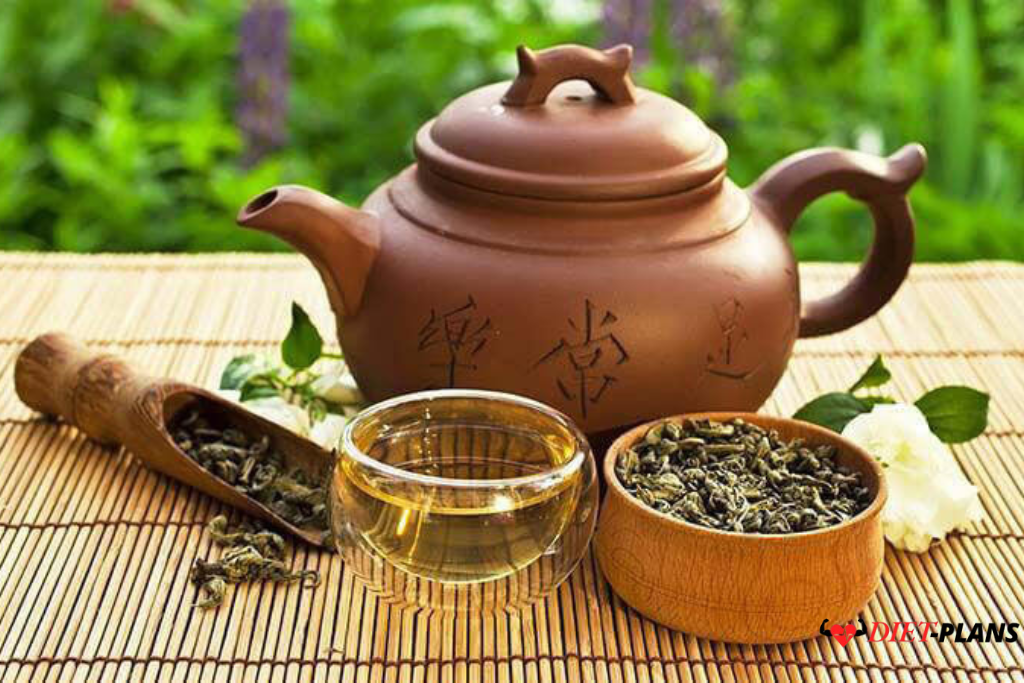Nutrition Experts Reveal How Oolong Tea Offers Numerous Health Benefits for Your Body and Mind
It’s no secret that we at REAL SIMPLE have a tea obsession. Why not? We’re not the only ones who like tea; it’s the most popular beverage in the world after water. From matcha’s antioxidant qualities to chamomile’s inherent propensity to promote relaxation, it’s calming, tasty, and full of health benefits.
Remember that there are many alternatives if you’re becoming sick of your typical Earl Grey or green (which happens). But right now, we’re obsessed with oolong tea.
How Does Oolong Tea Taste and What Is It?
Oolong tea is tea that has been partly “fermented.” After being plucked, the leaves are allowed to oxidize, or ferment, before being dried. On a sliding scale, oolong teas fall between black and green teas.
Peter Goggi, the president of the Tea Council of the USA, states that to fully comprehend oolong tea, one needs first to have a basic understanding of green and black tea. “They are all referred to as real teas and are made from the leaves of the Camellia sinensis tea plant. Since green tea is not oxidized, it is not exposed to oxygen for a lengthy amount of time while being produced. It has a grassy, hay-like taste and stays green. However, black tea is completely oxidized—it is exposed to air for a long time to allow the natural chemical reaction occurring in the leaf to finish before it is dried. Black tea has a stronger body, is deeper in color, and gives the cup a crimson tint.
Goggi claims that oolong tea is a tea with just partial oxidation. “Its final color and strength in the cup depend on how long oxidation takes place,” according to him. Some oolongs are very oxidized and those that are just slightly oxidized. This indicates that the normal oolong tea tastes are somewhat diverse. Nonetheless, the most prized oolongs are light-colored and transparent when brewed, with a noticeable peach or pear taste.
Benefits of Oolong Tea
1. Oolong Tea is Excellent for Intestinal Health
“Emerging data suggests that black tea, green tea, and oolong tea can all increase the growth of beneficial bacteria in the human intestine,” says Samina Kalloo, RDN, CDN. “Research surrounding the link between food and the gut microbiome continues to surface, and more studies are exploring the link between the ingestion of specific beverages, particularly oolong tea, in promoting gut health.” Keep in mind that a robust immune system depends on a healthy gut microbiota.
2. It Also Combats Inflammation
“In addition to its unique taste and aroma as a semi-fermented tea, oolong tea possesses a characteristic compound called Thea Sinensis, which is a group of tea polyphenols (a potent antioxidant) that has been shown to have health-promoting properties,” explains Kalloo. “While further studies are needed on the bioavailability of Thea Sinensis, current data suggests these compounds may play a key role in the health benefits of oolong tea, including the anti-hyperglycemic—aka blood sugar balancing—and anti-inflammatory effects.”
3. Oolong Tea Has Calming and Stress-Relieving Properties
Kalloo asserts that the amino acid L-theanine has strong health advantages in all real teas, including black, green, white, oolong tea, and dark. “Studies investigating L-theanine and caffeine—the components of true teas originating from the Camellia sinensis plant—have found that L-theanine is associated with improved relaxation, tension, and calmness,” according to her. By lessening the excitation that coffee causes, L-theanine promotes relaxation. L-theanine and caffeine have also been shown in studies to improve memory and concentration while reducing distraction. Furthermore, 200–400 mg of L-theanine daily may help people in stressful situations feel less anxious and stressed, according to a 2020 review of research on pure L-theanine.
How Oolong Tea Is Made
As a general rule, the bigger and more delicate-looking the leaf, the lower the water temperature should be for making tea, according to the Tea Council of the USA. “Usually, you will want to use between 180-190°F water for big oolongs and white teas,” Goggi says. While boiling water burns a robust leaf-like white tea, black teas need considerably hotter water for optimal extraction. “Oolongs need a little longer steep time than white tea; oolongs should steep for five to seven minutes, while white tea should soak for three to four minutes. Of course, you may change any of this to suit your preferences. These guidelines should simply serve as a starting point. Everyone should experiment with different tea amounts, temperatures, and times until they discover the one that works best for them.”

